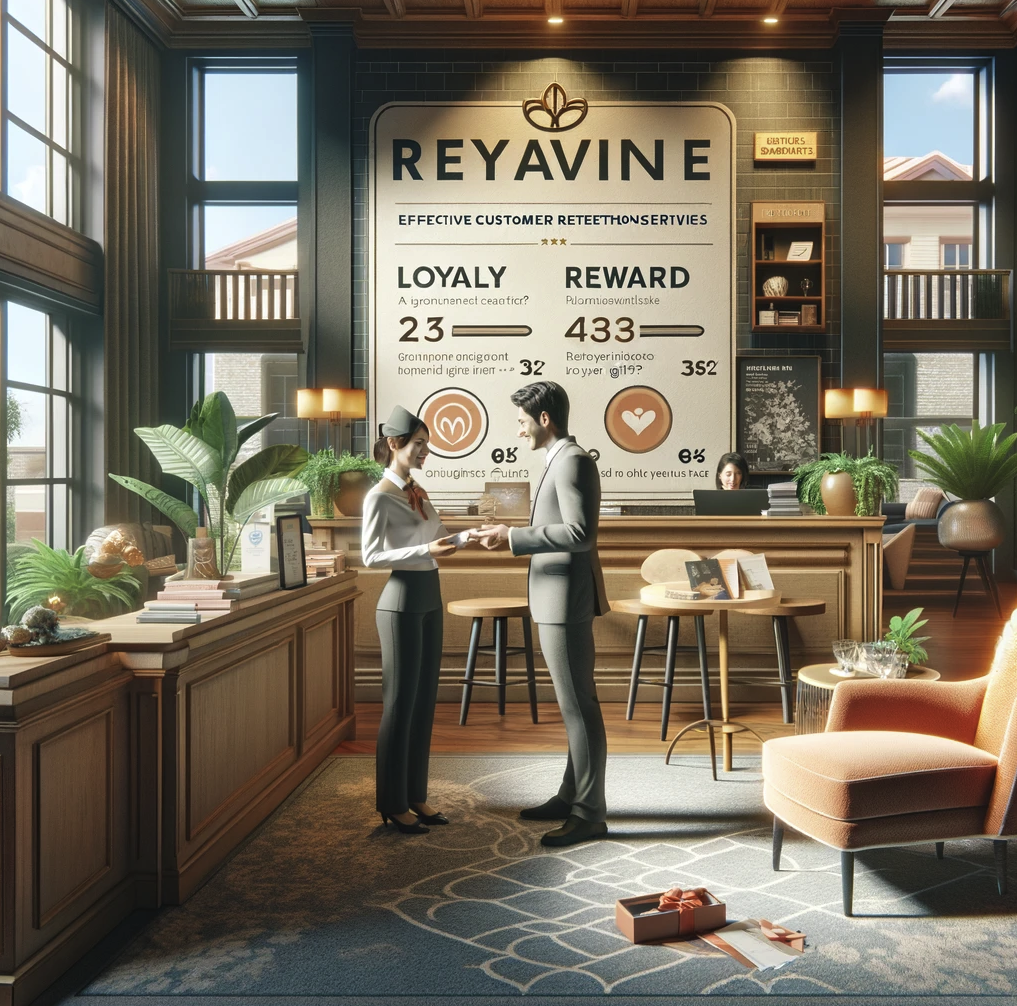This guide will examine into essential customer retention strategies that hotels can implement to foster loyalty and ensure repeat business. In the competitive hospitality industry, retaining customers is paramount to long-term success. By focusing on personalized experiences, exceptional service, and loyalty programs, hotels can increase customer satisfaction and encourage guests to return time and time again.
Table of Contents
The Importance of Customer Retention in the Hotel Industry
A key factor in the success of any hotel is its ability to retain customers. Customer retention is the process by which a hotel maintains or increases its customer base by ensuring customer satisfaction and loyalty. In the competitive hotel industry, where guests have numerous options to choose from, retaining customers is essential for long-term success.
Understanding Customer Retention
Understanding customer retention involves analyzing how satisfied customers are with their overall experience at the hotel. It is not just about attracting new customers but also about keeping existing ones. By focusing on providing exceptional service, personalized experiences, and addressing customer feedback, hotels can build strong relationships with their guests, leading to repeat business and positive word-of-mouth referrals.
Customer loyalty is invaluable in the hotel industry as loyal customers are more likely to book repeat stays, spend more on additional services and amenities, and recommend the hotel to others. By investing in customer retention strategies, hotels can create a loyal customer base that contributes significantly to the hotel’s revenue and profitability in the long run.
How Retention Impacts Profitability
Customer retention has a direct impact on a hotel’s profitability. It is estimated that acquiring a new customer can be five times more expensive than retaining an existing one. Loyal customers not only bring in repeat business but also have a higher average spending rate compared to new customers. They are more likely to book premium rooms, dine at on-site restaurants, and utilize other revenue-generating services, thereby increasing the hotel’s overall profitability.
Building Relationships with Guests
Personalization of Guest Experience
Experience is key when it comes to building relationships with guests in the hospitality industry. Personalization of the guest experience can make a significant impact on customer retention. By tailoring services and interactions to meet the individual needs and preferences of each guest, hotels can create a memorable and unique experience that fosters loyalty.
From personalized welcome messages to customized room amenities, there are various ways hotels can enhance the guest experience. Leveraging data and technology to capture guest preferences and behavior can help hotels anticipate needs and deliver personalized services, creating a more meaningful connection with guests.
Leveraging Customer Feedback
An effective way to build relationships with guests is by leveraging customer feedback. By actively seeking and listening to guest reviews, hotels can gain valuable insights into guest preferences, expectations, and areas for improvement. This feedback provides hotels with an opportunity to address concerns, make necessary changes, and show guests that their opinions are valued.
With the rise of online review platforms and social media, guest feedback plays a crucial role in shaping the reputation of a hotel. Hotels that proactively engage with and respond to customer feedback demonstrate a commitment to excellence and guest satisfaction, ultimately building trust and loyalty among guests.
Loyalty Programs and Rewards
Obviously, loyalty programs and rewards are essential tools for hotels looking to boost customer retention. By offering incentives and exclusive benefits to repeat guests, hotels can foster long-term relationships and encourage loyalty among their clientele.
Designing Effective Loyalty Programs
Programs aimed at retaining customers should be carefully designed to meet the needs and preferences of the target audience. Personalization is key when it comes to loyalty programs, as guests appreciate tailored offers that cater to their individual tastes and preferences. Additionally, simplicity and transparency in program rules can enhance the overall customer experience and make it easier for guests to engage with the rewards system.
When designing effective loyalty programs, hotels should also consider offering a variety of rewards, such as room upgrades, complimentary services, or discounts on future stays. By providing a range of enticing incentives, hotels can appeal to a broader spectrum of guests and increase the likelihood of repeat business.
Benefits of Rewards in Building Loyalty
With the right rewards in place, hotels can create a sense of value and appreciation among their customers, ultimately leading to increased loyalty and satisfaction. Guests who feel recognized and rewarded for their patronage are more likely to continue choosing the same hotel for their future stays, thus driving revenue and building a loyal customer base.
For instance, offering exclusive perks like early check-in/out options or personalized welcome amenities can make guests feel special and valued, ultimately strengthening their emotional connection to the hotel brand. By consistently exceeding guest expectations through rewards and incentives, hotels can differentiate themselves from competitors and solidify their position in the market.
Communication and Engagement Strategies
Your hotel’s communication and engagement strategies play a crucial role in retaining customers. Effective communication helps build relationships with guests and keeps them engaged with your brand even after they leave your property.
Utilizing Social Media and Email Marketing
Communication through social media and email marketing is essential in today’s digital age. Utilizing platforms like Facebook, Instagram, and Twitter allows you to engage with your guests on a more personal level, providing updates on promotions, events, and personalized offers. Email marketing can also be a powerful tool to stay connected with your guests, sending them relevant information and special deals to entice them to return.
An engaging social media presence and targeted email campaigns can keep your hotel top of mind for guests when they are planning their next trip. By consistently providing value and personalized communication, you can build a loyal customer base that chooses your hotel over competitors.
Creating Value Through Content and Communication
Communication is not just about sending out promotions and offers; it’s also about creating value for your guests. By sharing relevant and engaging content, such as travel tips, local recommendations, and behind-the-scenes glimpses of your hotel, you can establish yourself as a trusted source of information. This not only keeps guests engaged but also positions your hotel as a desirable destination worth returning to.
Innovative Service and Experience Enhancements
Embracing Technology in Guest Services
The rapid advancement of technology has significantly transformed the way hotels engage with their guests. Leveraging technology in guest services is crucial for enhancing the overall guest experience and staying competitive in the industry. From mobile check-ins and keyless entry systems to in-room tablets for service requests, hotels are embracing a wide range of tech solutions to streamline processes and provide a seamless experience for guests.
The integration of artificial intelligence, chatbots, and virtual reality experiences has also revolutionized guest services, allowing for personalized interactions and efficient communication. By investing in innovative technology, hotels can create a more convenient and immersive stay for their guests, ultimately leading to higher satisfaction rates and increased customer loyalty.
Hosting Memorable Events and Experiences
Guests are increasingly seeking unique and memorable experiences when they stay at a hotel. Hosting special events and providing tailored experiences can set a hotel apart and create lasting memories for guests. Whether it’s a wine tasting event, a cooking class with the chef, or a cultural showcase, these experiences go beyond traditional hospitality offerings and leave a lasting impression on guests.
Hotels can also collaborate with local artists, musicians, or wellness experts to offer exclusive workshops or performances for their guests. By curating these one-of-a-kind experiences, hotels can not only attract new customers but also foster loyalty among existing ones who are looking for something beyond just a place to stay.
Guests are increasingly valuing experiences over material possessions, making it essential for hotels to go beyond standard amenities and provide memorable moments that enrich their stay. By focusing on creating unique events and experiences, hotels can cultivate a loyal customer base that appreciates the added value and personal touch.
Staff Training and Internal Culture
Fostering a Culture of Excellence
The cornerstone of a successful customer retention strategy in hotels lies in fostering a culture of excellence within the organization. This culture must start from the top down, with leadership setting clear expectations and embodying the values they wish to see reflected in their staff. Employees should feel empowered to go above and beyond for guests, understanding that exceptional service is not just a goal but a standard.
Training programs that focus on enhancing communication skills, problem-solving abilities, and emotional intelligence can help reinforce this culture of excellence. By investing in the personal and professional development of staff members, hotels can create a team that is not only highly skilled but also deeply committed to delivering exceptional experiences to every guest.
Training Staff for Optimal Guest Engagement
Culture and training go hand in hand when it comes to optimizing guest engagement. Providing ongoing education and training opportunities for staff enables them to stay current with industry trends, best practices, and innovative ways to exceed guest expectations. By continuously refining their skills and knowledge, employees are better equipped to anticipate and fulfill the evolving needs of guests.
Any hotel aiming to excel in customer retention must prioritize training programs that focus on enhancing guest communication, problem-solving, and conflict resolution skills among staff. These programs should be interactive, engaging, and tailored to the specific needs of the hospitality industry, equipping employees with the tools they need to deliver exceptional service consistently.
Summing up
Ultimately, implementing effective customer retention strategies in hotels is crucial for building and maintaining a loyal customer base. By providing exceptional customer service, personalized experiences, loyalty programs, and consistently seeking feedback, hotels can enhance guest satisfaction and increase the likelihood of guests returning for future stays. It is important for hotels to prioritize customer retention efforts, as this leads to long-term success, positive word-of-mouth recommendations, and increased profitability in the highly competitive hospitality industry.
FAQ
Q: What are customer retention strategies in hotels?
A: Customer retention strategies in hotels are tactics and techniques implemented by hoteliers to encourage guests to return to their establishment. These strategies focus on building long-term relationships with guests, enhancing customer satisfaction, and creating loyalty.
Q: Why are customer retention strategies important for hotels?
A: Customer retention strategies are crucial for hotels because it is more cost-effective to retain existing customers than to acquire new ones. Loyal customers are more likely to spend more, promote the hotel through word-of-mouth, and provide valuable feedback for improvement.
Q: What are some effective customer retention strategies for hotels?
A: Some effective customer retention strategies for hotels include personalized experiences for guests, loyalty programs, excellent customer service, regular communication through emails or newsletters, special promotions for returning guests, and soliciting feedback to show guests their opinions are valued.










